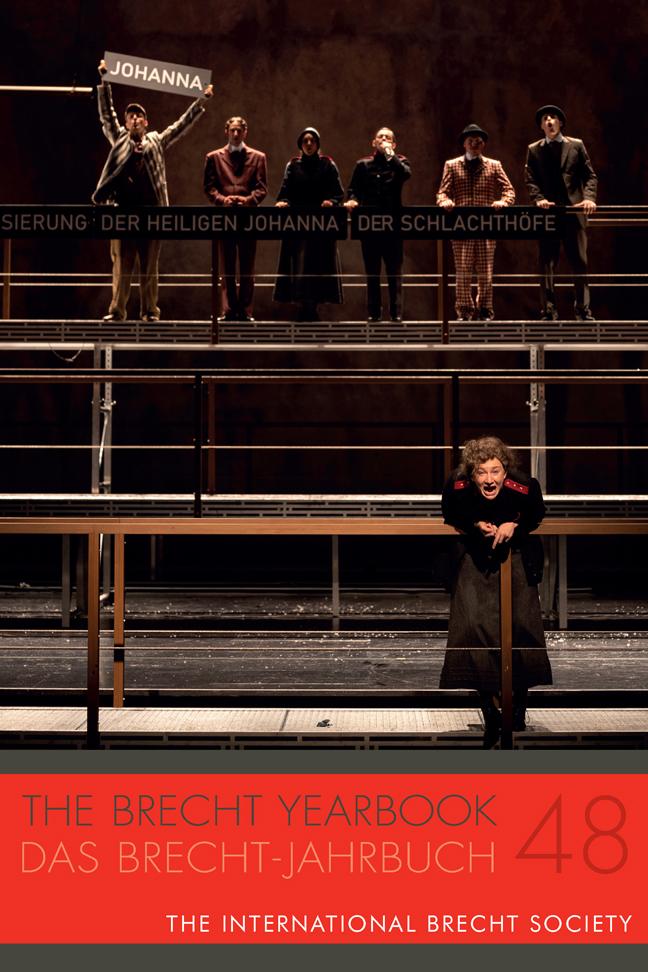Structural Undecidability and the Logic of the Specter in Bertolt Brecht's Drums in the Night
Published online by Cambridge University Press: 22 February 2024
Summary
Incidentally I have never had any respect for revolutionaries who put off the revolution because things were too hot for them.
An error?
I have always needed the spur of contradiction.
Bertolt Brecht's Drums in the Night (1919) has been canonically included in the author's undertheorized and premature period, preluding the complex theoretical epic theater that would mostly be associated with his name. As the object of a controversy that ranged from absolute denial of the play's artistic value by the author himself to its unfortunate aesthetic appraisal on the side of the bourgeoisie, Drums in the Night can be considered an undecidable play that avoids the telos of the epic Fabel while dismantling the traditional principles of the bürgerliches Trauerspiel (bourgeois tragedy). Taking as a starting point Astrid Oesmann's injunction that Brecht's early writings (1918–26) can be thought of as precarious gestures already pointing toward the author's later commitment to dialectical materialism and political theater, this article will analyze Andreas Kragler's various (dis)articulations from the perspective of Jacques Derrida's hauntology of the specter. Based on this framework, I will argue that Kragler's unusual characterization, in Derrida's terminology, undermines the orthodoxy of “theatres of representation” by bringing to the fore the eschatological dimensions of the enlightened subject. Brecht's phantasmatic figure, as we will see, disrupts the macro-political, aesthetical concepts of “revolution,” “representation,” and “sameness,” and thus inscribes itself into a site of hegemonic struggle, both formally/abstractly and ontologically. I have divided this article into three parts: the first one historicizes the critical reception of Kragler in order to show that the commentators’ prolific divergences construct the character's political identity as a necessarily undecidable critical gap. In this section, Kragler's contradictoriness and ambiguity will be conceived as an aporetic force of meaning-production, i.e., a principle of indeterminacy which gives Brecht's early play the potential to preempt post-structuralist notions of “subject” and “society.” Consistent with the purpose of historicizing the play, the second part will deal with the theoretical framework by which Kragler's phantasmatic nature, beyond epitomizing the telos of the “traditional ghost-story,” can be conceived of as the bearer of a supplementary incarnation and thus as an ontological différance of the Marxist revolutionary subject. To conclude, in order to explain the complex conjuncture between spectral ontology and politics that Kragler's undecidability incarnates, a link will be established between Derrida's logic of spectrality and Laclau's deconstructive theory of hegemony.
- Type
- Chapter
- Information
- The Brecht Yearbook / Das Brecht-Jahrbuch 48 , pp. 197 - 216Publisher: Boydell & BrewerPrint publication year: 2023



